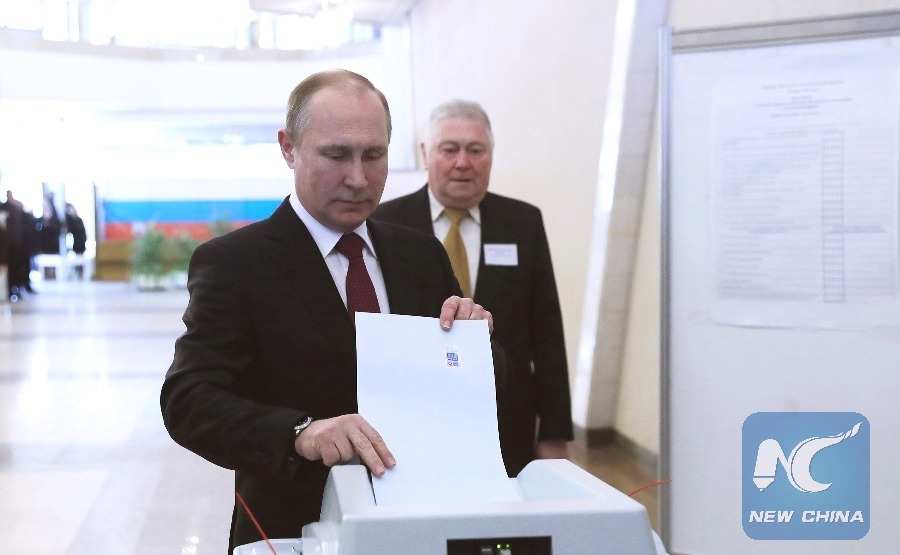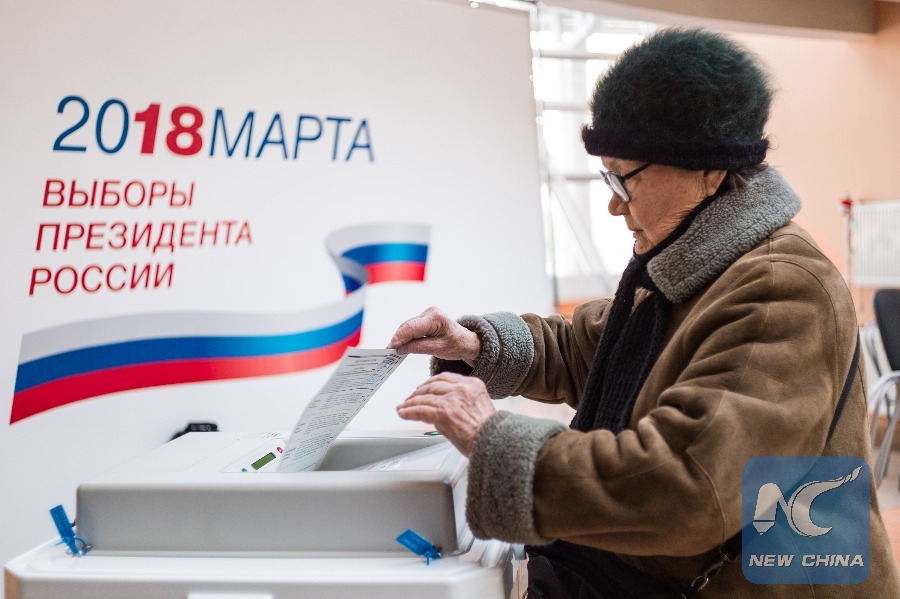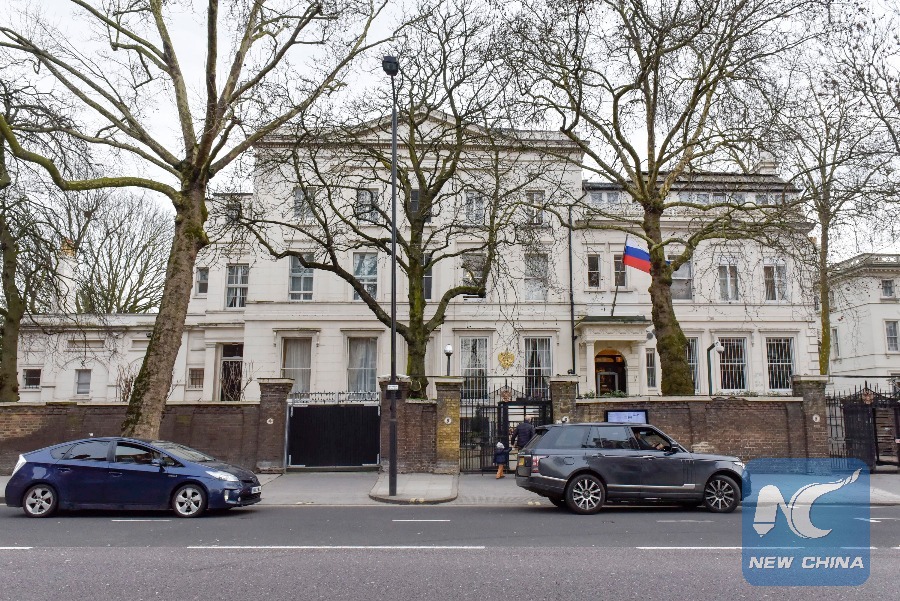
Photo taken on March 18, 2018 shows a screen updating the votes of Russia's incumbent President Vladimir Putin at a press conference of the Russian Central Election Commission (CEC) in Moscow, Russia. (Xinhua/Bai Xueqi)
MOSCOW, March 19 (Xinhua) -- The overwhelming victory of incumbent Russian President Vladimir Putin at Sunday's election resulted from the consolidation of people around their leader in an adverse international situation and pressure from Western states, officials and analysts say.
"The high voter turnout evidences a responsible attitude of society towards the future of our country. And the results show that Vladimir Putin enjoys absolute support of Russian citizens," Vyacheslav Volodin, the speaker of the State Duma, was quoted as saying by the RIA Novosti news agency.
He said this support would allow Putin to "defend the interests of his country at the international level, as well as to set and solve strategic tasks of its development."
According to preliminary data released by the Central Election Commission (CEC) on Monday, Putin won a record 76.67 percent of votes with over 56 million people voting in favor of him.

Russian President Vladimir Putin casts his vote in a polling station in Moscow, Russia, on March 18, 2018. (Xinhua/ Kremlin Pool)
In the 2012 elections, Putin was supported by 45.6 million Russians (63.60 percent); in 2004, he gained 71.31 percent (49.6 million voters); and in 2000, he won 52.94 percent (39.7 million people).
The turnout for Sunday's presidential elections in Russia, according to the CEC, was 67.49 percent (over 73 million people), compared to 65.3 percent (71.8 million people) in March 2012.
"Our people always unite in difficult times, so many thanks to some leaders of Western states, which I will not name, and which also contributed to the consolidation of our people," said Ella Pamfilova, the CEC head, at a press conference on Monday.
"Putin's demonization in the West has had an opposite effect in Russia -- an unprecedented rallying of citizens around his figure. The elections confirmed this fact," Alexei Pushkov, chairman of the Interim Council of the Federation Council on Information Policy and Interaction with the Media, said on his Twitter account.
On the eve of the Russian presidential elections, Britain announced the expulsion of 23 Russian diplomats, freezing of Russian state assets, suspension of high-level bilateral contacts, and a boycott of this year's World Cup in Russia by ministers and royal family members after the poisoning of a former Russian ex-spy and his daughter in Britain.

A Russian voter casts her vote in Moscow. (Xinhua/ Wu Zhuang)
The British authorities held Moscow responsible for the incident, and they were supported by the leaders of France, Germany, and the United States, as well as by North Atlantic Treaty Organization (NATO) Secretary General Jens Stoltenberg.
The Russian government has denied any involvement in the attack.
The West has imposed several sets of economic sanctions on Russia since 2014 over the incorporation of Crimea, formerly part of Ukraine, and Moscow's alleged involvement in a conflict in Ukraine.
According to the CEC, Putin's closest rival Pavel Grudinin, an entrepreneur, won 11.8 percent of votes, and Vladimir Zhirinovsky, who came third, was supported by 5.6 percent of voters.
"Now the government needs less to legitimize the incumbent president than in the previous elections, as his authority is based on the incorporation of Crimea and the military-political confrontation with the West," political scientist Nikolai Petrov was quoted as saying by the Vedomosti business daily newspaper on Monday.

Photo taken on March 14, 2018 shows a general view of the exterior of the Russian Embassy in London, Britain. British Prime Minister Theresa May on Wednesday announced a series of measures against Russia over a recent attack on former Russian spy Sergei Skripal and his daughter. (Xinhua/ Stephen Chung)
According to the expert, Putin competed not so much with his electoral opponents, but with his own results of the previous elections.
Putin had to win such numbers at the plebiscite that could confirm a high level of approval of his policy, giving him the right to make any statements and initiatives on behalf of the majority who supported him, Petrov said.
"The lack of real competition has turned the presidential election into a referendum to support Vladimir Putin," Vedomosti said in an editorial article Monday.

